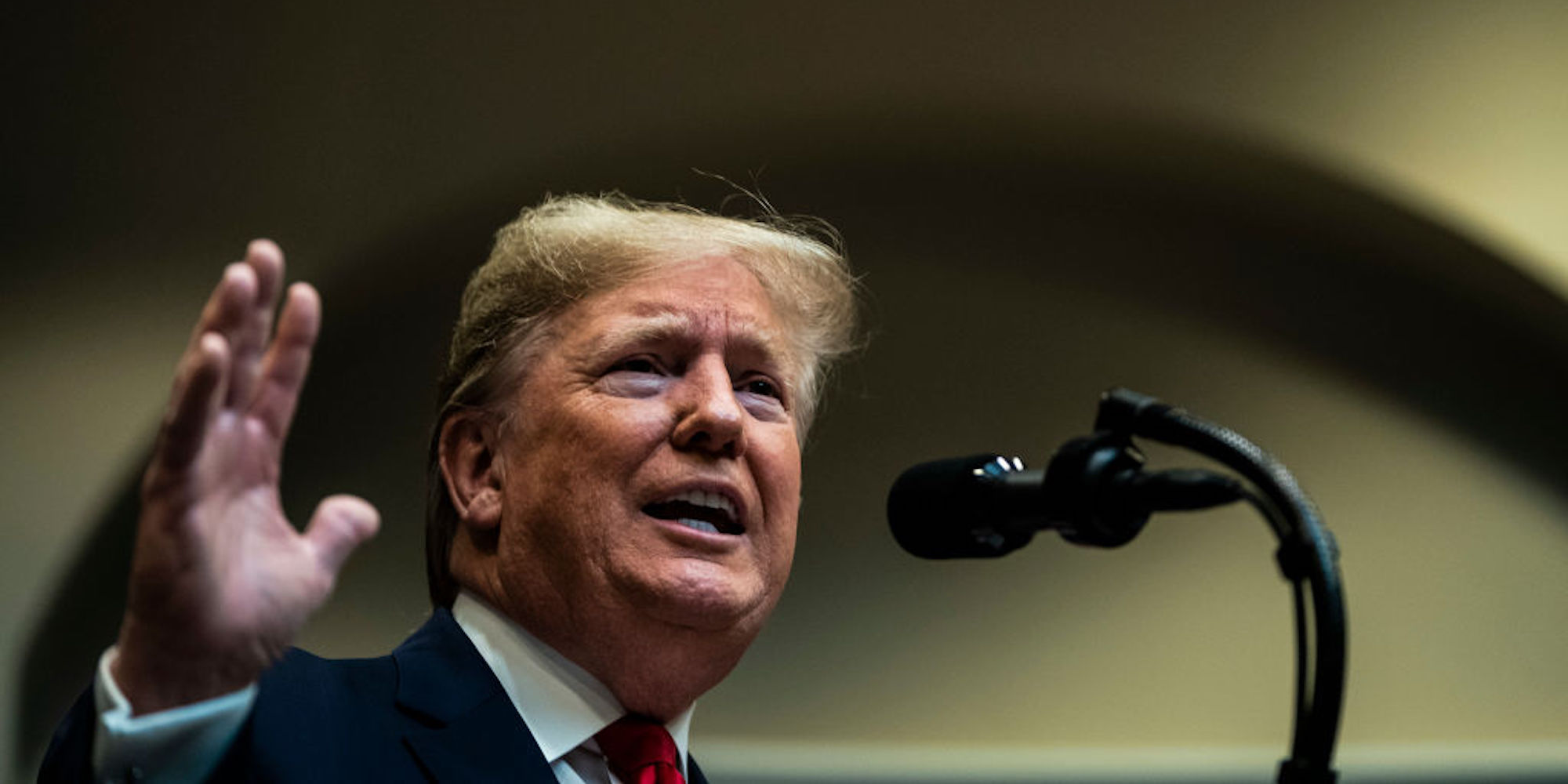- President Donald Trump and top administration officials are offering different – sometimes contradictory – reasons for the US decision to assassinate the top Iranian commander Qassem Soleimani earlier this month.
- Trump in an interview with Fox News’ Laura Ingraham on Friday said he thought Soleimani was plotting imminent strikes on four US embassies.
- Asked in an interview on CNN on Sunday about that claim, Defense Secretary Mark Esper said he had been presented with no evidence showing that four embassies were being targeted.
- Democratic Sen. Chris Coons of Delaware in a Sunday interview with “Fox News Sunday” said that in a classified briefing with the Trump administration on Iran, senators “got less detailed information than President Trump shared with Laura Ingraham.”
- Visit Business Insider’s homepage for more stories.
In seeking to explain why the US killed the top Iranian military commander in a drone strike earlier in January, President Donald Trump and key administration officials are having a hard time settling on a clear story.
With the assassination perhaps among the most consequential decisions of his presidency, Trump has sought to justify it by arguing Soleimani posed an “imminent” threat and, in an interview with Fox News’ Laura Ingraham on Friday, suggesting the general was plotting attacks on not just one but four US embassies in the Middle East.
Secretary of State Mike Pompeo had earlier also asserted that Soleimani posed an imminent threat but then, bafflingly, said there was no time frame in which the attacks were expected to occur.
Then, in an interview on CNN on Sunday, Defense Secretary Mark Esper wound himself in a tangle of contradictions, saying he had been presented with no evidence showing that four embassies were being targeted but nonetheless shared the president’s “belief” that four embassies were under threat of attack.

Lawmakers say the information presented to Congress in classified briefings has not made the case Soleimani presented an imminent threat any more compelling.
Sen. Chris Coons of Delaware in an interview with "Fox News Sunday" accused the president of sharing more information on the strike with Ingraham on Friday than he had done with lawmakers.
"Frankly in the classified briefing that lasted 75 minutes and had virtually the entire Senate there, we got less detailed information than President Trump shared with Laura Ingraham," Coons told the host Chris Wallace.
"So we were told repeatedly that there was reliable intelligence of an imminent threat, that's it."
Wallace later interviewed the White House national security adviser, Robert O'Brien, about why lawmakers were not briefed with information on a specific threat to four US embassies the president felt free to share with millions on TV.
"He is telling Laura Ingraham, our esteemed colleague, but in a 75-minute classified briefing your top national security people never mention this to members of Congress," Wallace said. "Why not?"
What an astoundingly embarrassing “defense” of President Trump’s claim of bomb threats to four embassies.
“What the President said was he believed it probably could have been. He didn’t cite intelligence.”
- Defense Secretary Mark Esper pic.twitter.com/b5LwrlbC4K
— Ryan Goodman (@rgoodlaw) January 12, 2020
O'Brien's response echoed Esper's - refusing to confirm that specific intelligence indicated a threat to four embassies, while describing the president's assertion as nonetheless "consistent" with the intelligence available.
"It is always difficult to know exactly what the targets are, but it certainly is consistent with the intelligence to assume they would have hit embassies in at least four countries," O'Brien said.

Further undermining the president's case, NBC News reported Monday that Trump had authorized the killing of Soleimani seven months ago as one of numerous acceptable retaliatory actions should Iran escalate its aggression against the US.
NBC News, citing numerous officials, said Trump was prepared to kill Iran's top general only if an American life was lost amid escalating tensions. That occurred December 27, when an Iran-backed militia in Iraq killed a US contractor in a rocket attack on a base in Iraq.
Thus according to this account the killing was seen as a severe punishment for Iran for the loss of an American life, signaling Iran had crossed a red line and warning against future escalations.
It was not reportedly at that time seen as a last resort to be used only if imminent threats presented themselves from Iran.
The assassination of Soleimani has set off a chain of events that throw the region in to chaos. Thousands of protesters have taken to the streets of Tehran after the Iranian government, poised for US retaliation for airstrikes it launched on targets in Iraq, accidentally shot down a civilian airliner.
As the consequences of the strike continue to play out in Iran and across the world, the Trump administration is sure to face questions about why it can't get its story straight.

